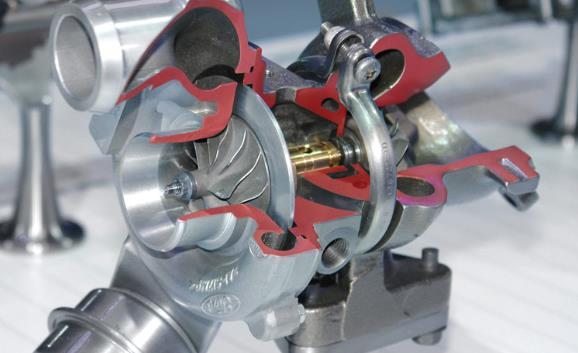Can You Flood Diesel Engine? Is It Possible?
Are you looking for a Can You Flood Diesel Engine? This question often puzzles many, especially those familiar with the quirks of gasoline engines. Diesel engines, known for their robustness and efficiency, operate differently from their gasoline counterparts. Understanding the potential for flooding in a diesel engine is crucial for maintenance and troubleshooting.
Key Takeaways
- Diesel engines are less prone to flooding compared to gasoline engines.
- Flooding in diesel engines can occur due to issues like over-fueling or low temperatures.
- Proper maintenance and understanding of diesel engine mechanics can prevent flooding.
Can You Flood Diesel Engine?
Yes, you can flood a diesel engine, but it’s less common than with gasoline engines. Flooding in diesel engines usually happens due to over-fueling or when the engine is cold. In such cases, excess diesel fails to ignite and accumulates in the engine, causing flooding.
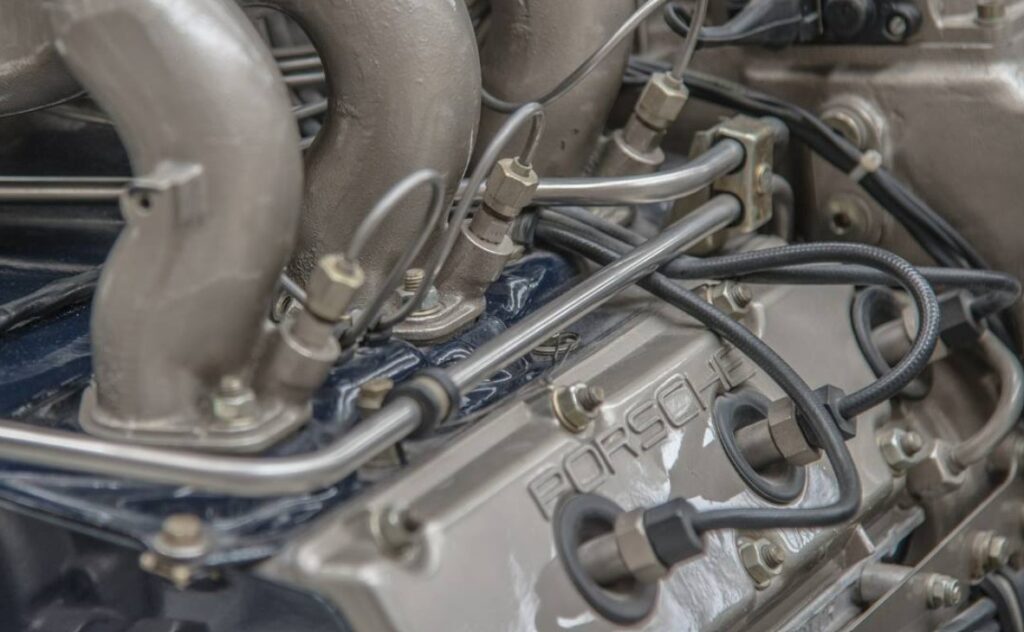
Mechanics Behind Diesel Engine Operation
Diesel engines work on the principle of compression ignition. They compress air to a high temperature, and then diesel fuel is injected. This process typically makes them less susceptible to flooding than gasoline engines, which rely on spark ignition.
Causes of Diesel Engine Flooding
Flooding in diesel engines can be attributed to several factors. Over-fueling, where too much fuel enters the combustion chamber, is a common cause. Cold weather can also play a role, as diesel fuel becomes more viscous in low temperatures, affecting the ignition process.
Symptoms and Diagnostics of a Flooded Diesel Engine
Identifying a flooded diesel engine is key to timely intervention. Common symptoms include difficulty starting, a strong smell of diesel, and visible exhaust smoke.
Troubleshooting Tips
- Check the fuel injection system for leaks or malfunctions.
- Inspect the glow plugs in cold weather conditions, as they are crucial for heating the air in the combustion chamber.
Preventative Measures for Diesel Engine Flooding
Prevention is always better than cure, especially concerning engine health. Regular maintenance checks and understanding the operational limits of your diesel engine are essential.
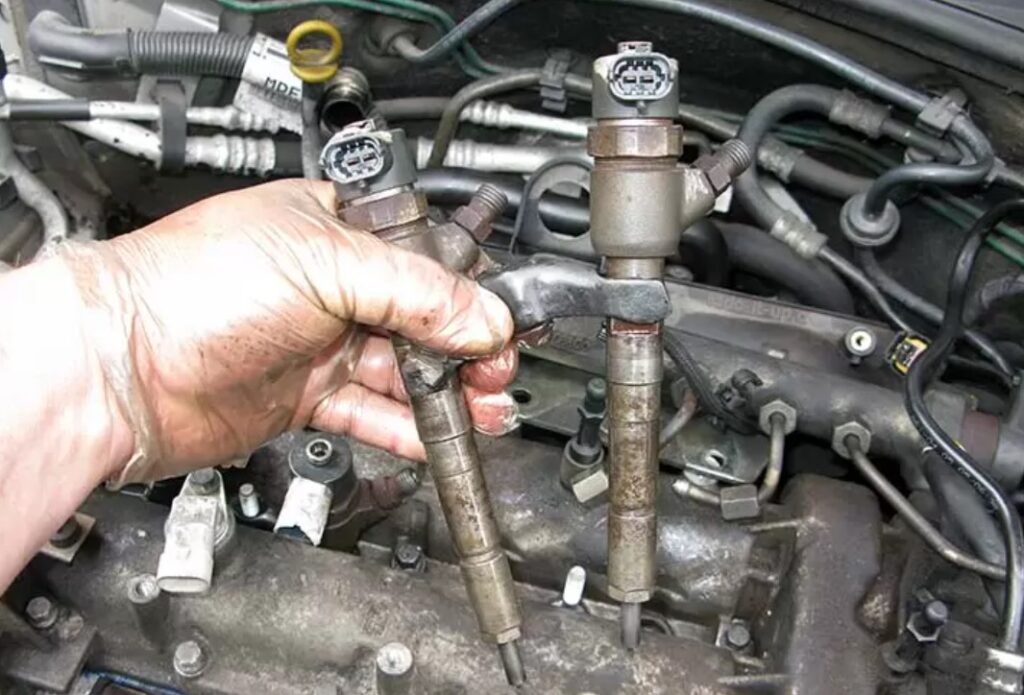
Regular Maintenance Tips
- Regularly inspect and replace fuel filters.
- Ensure glow plugs are functioning correctly, especially in colder climates.
Comparison: Diesel vs. Gasoline Engine Flooding
Understanding the differences between diesel and gasoline engines in terms of flooding risk can help in better engine care.
Key Differences
- Diesel engines use compression ignition, whereas gasoline engines use spark ignition.
- Diesel is less volatile than gasoline, making diesel engines less prone to flooding.
Impact of Fuel Quality on Diesel Engine Performance
Fuel quality plays a pivotal role in the performance and health of diesel engines. Low-quality diesel can lead to various issues, including the risk of flooding.
Importance of Using High-Quality Diesel
High-quality diesel ensures efficient combustion, reducing the risk of unburnt fuel accumulating in the engine.
Advanced Technologies in Modern Diesel Engines
Modern diesel engines are equipped with advanced technologies that reduce the likelihood of flooding and improve overall performance.
Innovations in Diesel Engine Design
- Common rail fuel injection systems provide precise fuel delivery.
- Advanced glow plug technology ensures better cold start performance.
Advanced Diagnostics and Repair Techniques for Flooded Diesel Engines
When a diesel engine floods, advanced diagnostics and repair techniques are crucial. These techniques help identify the root cause and ensure appropriate repairs are made.
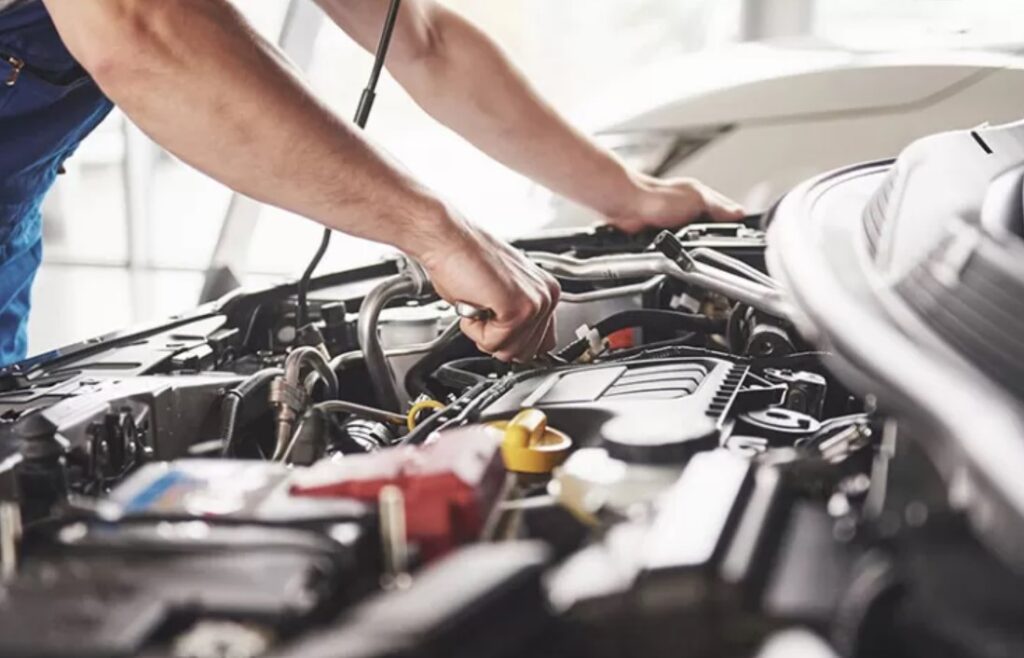
Utilizing Diagnostic Tools
Modern diagnostic tools can read engine codes and identify specific problems, such as issues with fuel injectors or glow plugs. These tools provide accurate insights, allowing for more targeted repairs.
Repair and Recovery Steps
Once the issue is diagnosed, repair steps might include draining excess fuel, cleaning or replacing fuel injectors, and ensuring the glow plug system is operational. These repairs are critical in restoring the engine to its optimal state.
Environmental Factors Affecting Diesel Engine Flooding
Environmental conditions can significantly impact the likelihood of a diesel engine flooding. Understanding these factors is essential for preventive maintenance.
Impact of Temperature and Humidity
Cold temperatures can affect fuel viscosity and combustion efficiency, increasing the risk of flooding. High humidity can also contribute to starting issues, potentially leading to over-fueling and flooding.
Adapting to Environmental Conditions
To mitigate these risks, it’s important to use the right grade of diesel for your climate and consider engine heaters or glow plug upgrades in colder regions.
Fuel System Maintenance to Prevent Diesel Engine Flooding
Regular maintenance of the diesel fuel system is vital to prevent flooding and other related issues.
Inspecting and Maintaining Fuel Injectors
Fuel injectors play a crucial role in diesel engines. Ensuring they are clean and functioning correctly can prevent over-fueling and subsequent flooding.
Importance of Fuel Filter Maintenance
Regularly changing fuel filters is crucial in maintaining fuel quality and flow. Clogged or dirty filters can cause an imbalance in fuel delivery, potentially leading to flooding.
Role of Engine Tuning in Preventing Flooding
Proper engine tuning can significantly reduce the risk of a diesel engine flooding. This involves adjusting various engine parameters to ensure optimal performance.
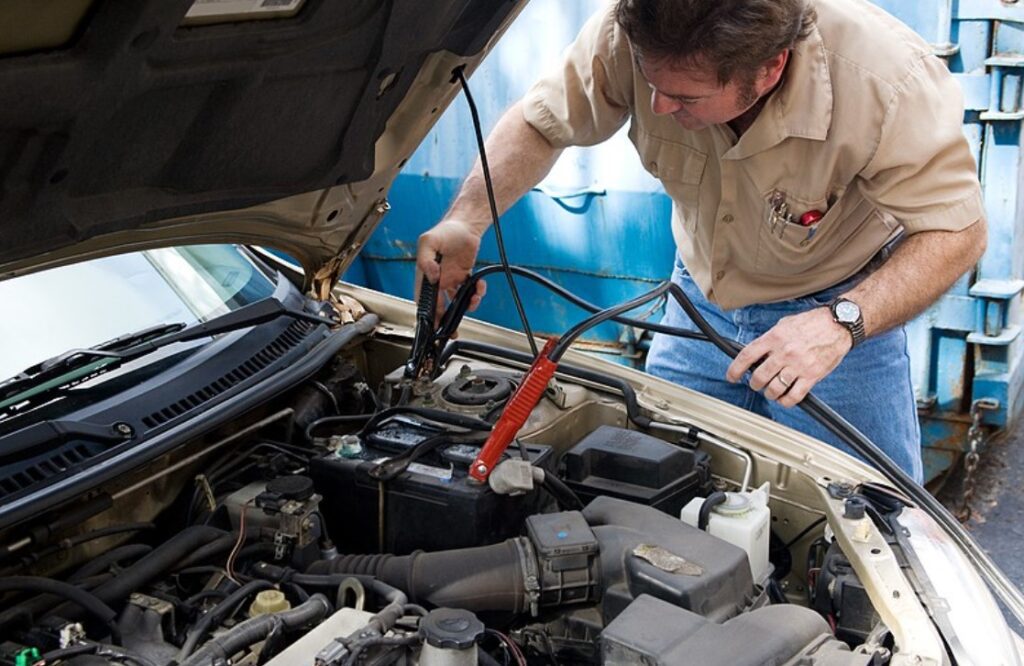
Benefits of Regular Engine Tuning
Engine tuning ensures that fuel injection and air intake systems are optimized, which helps in maintaining efficient combustion and preventing flooding.
Professional Tuning Services
Seeking professional tuning services can provide a more tailored approach, adjusting your engine to suit specific conditions and usage patterns.
Advanced Fuel Technologies in Modern Diesel Fuels
The evolution of diesel fuel technology plays a pivotal role in engine performance and flood prevention.
Developments in Diesel Fuel Formulations
Newer diesel fuel formulations include additives that improve combustion efficiency and cold weather performance, reducing the risk of flooding.
Impact of Bio-diesel and Alternative Fuels
The use of bio-diesel and alternative diesel fuels has been on the rise. These fuels often have different properties, which can influence engine performance and flooding potential.
How To Start A Flooded Diesel Motor?
Starting a flooded diesel motor requires a careful approach to avoid further damage. The first step is to stop attempting to start the engine and allow the excess fuel to evaporate. This might take several hours.
Next, check and clean the glow plugs, as these are essential for starting a diesel engine, especially when it’s flooded. If the glow plugs are not functioning correctly, they should be replaced. Additionally, inspect the air filter for any fuel contamination and replace it if necessary.
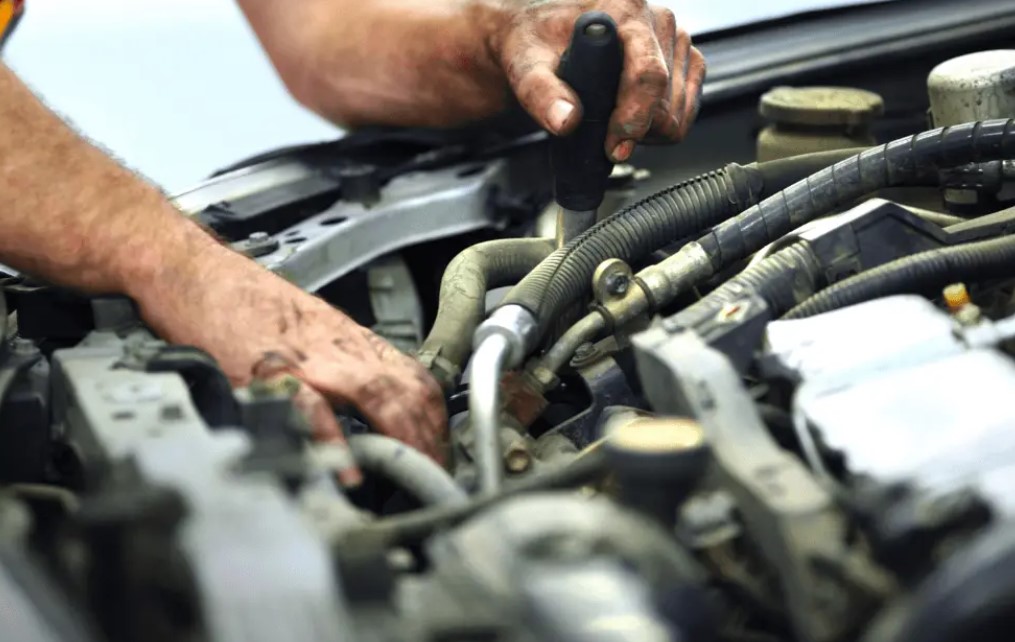
Once these steps are taken, try starting the engine without pressing the accelerator. If the motor does not start after several attempts, further mechanical inspection might be required. It’s often advised to seek professional help at this stage, as there might be underlying issues that need addressing.
What Happens If You Add Water To Diesel?
Adding water to diesel fuel can cause significant issues in a diesel engine. Water in the diesel fuel can lead to microbial growth, which can clog fuel filters and injectors.
It can also cause corrosion in the fuel system, leading to leaks and mechanical failures. Furthermore, water in diesel disrupts the fuel’s combustion process, resulting in poor engine performance, increased emissions, and potentially causing the engine to stall.
To avoid these problems, it’s important to ensure that diesel fuel is stored properly and that fuel tanks are kept free of water. If water contamination is suspected, the fuel should be drained and replaced, and the entire fuel system should be checked and cleaned if necessary.
Will Water Destroy A Diesel Engine?
Water can indeed cause significant damage to a diesel engine. The presence of water in the diesel fuel system can lead to hydrolock, a condition where water enters the combustion chamber and prevents the pistons from moving, as water is incompressible.
This can cause severe mechanical damage, including bent or broken pistons, damaged cylinder heads, and other critical engine components.
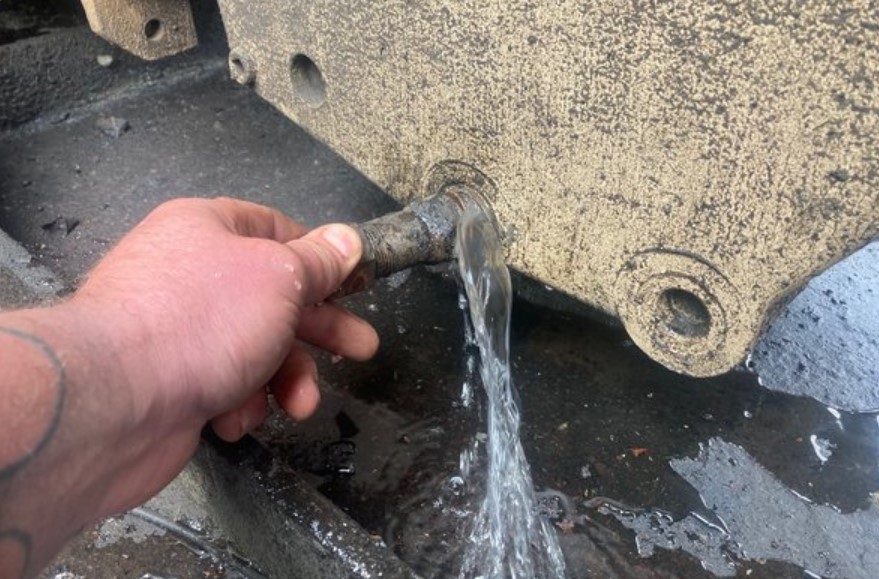
Additionally, water can cause rust and corrosion within the engine and fuel system, leading to premature wear and potential failure of key components. Regular maintenance checks, using water separators, and ensuring high-quality fuel can prevent water-related damage in diesel engines.
Is It Possible To Flood Your Engine?
Yes, it is possible to flood an engine, and this issue can affect both diesel and gasoline engines, albeit in different ways due to their distinct operational mechanics.
In gasoline engines, flooding typically occurs when too much fuel is supplied to the combustion chamber, overpowering the spark plug’s ability to ignite it. This excess fuel can wet the spark plugs, preventing them from sparking and thus stopping the engine from starting.
In diesel engines, flooding is less common but can still occur, primarily due to over-fueling or issues related to cold starting. When too much diesel is injected into the combustion chamber without adequate heat for ignition, it can lead to a flooded state. Unlike gasoline engines, diesel engines rely on heat generated by compressed air for ignition, so the presence of excessive fuel without sufficient heat can cause starting issues.
To resolve flooding in any engine type, the excess fuel must be cleared from the combustion chamber, and components like spark plugs (in gasoline engines) or glow plugs (in diesel engines) may need checking or replacing.
Will Starting Fluid Hurt A Diesel Engine?
Using starting fluid in a diesel engine should be done with caution. Starting fluids, typically composed of ether, provide a highly volatile fuel that can assist in starting an engine in cold conditions. However, their use in diesel engines can be risky.
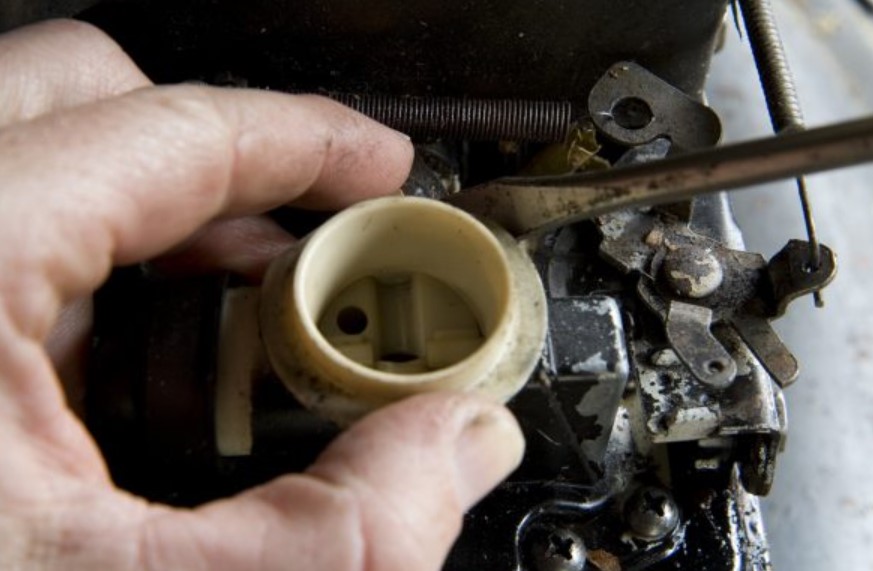
Diesel engines are designed to ignite fuel through compression heat, and the introduction of starting fluid can cause premature ignition or “knock.” This premature ignition can lead to increased wear and tear on engine components and, in extreme cases, can cause immediate engine damage.
Furthermore, over-reliance on starting fluids can mask underlying issues in a diesel engine, such as problems with glow plugs or fuel delivery systems.
If a diesel engine is having trouble starting, it is generally better to investigate and rectify these issues rather than resort to starting fluids. In cases where starting fluid is deemed necessary, it should be used sparingly and as per the manufacturer’s guidelines.
Conclusion
In conclusion, while it is possible to flood a diesel engine, it’s less common than in gasoline engines. Preventative measures, regular maintenance, and an understanding of the underlying mechanics can significantly reduce the risk. Optimizing diesel engine performance is key to avoiding issues like flooding, and ensuring your engine runs smoothly and efficiently.
People Also Ask
Is It Safe to Drive a Diesel Vehicle That Has Experienced Flooding?
Driving a diesel vehicle that has experienced flooding without addressing the issue can be risky. It’s important to resolve the underlying cause of the flooding first. Continuing to drive with a flooding problem can lead to more significant engine damage and safety issues.
Can Upgrading the Fuel Injection System Help Prevent Flooding?
Upgrading to a more advanced fuel injection system can help in preventing flooding. Modern systems like common-rail injectors offer better fuel atomization and precise control, which can reduce the chances of over-fueling and flooding.
Does Engine Tuning Affect the Risk of Flooding in Diesel Engines?
Proper engine tuning can significantly reduce the risk of flooding. Tuning involves adjusting the fuel injection timing and quantity, air intake, and other parameters to ensure efficient combustion and prevent excess fuel in the engine.
Can Regular Maintenance Prevent Diesel Engine Flooding?
Regular maintenance is key in preventing flooding. This includes timely replacement of fuel filters, checking and maintaining fuel injectors and glow plugs, and ensuring the fuel system is in good condition.
How Do You Fix a Flooded Diesel Engine?
To fix a flooded diesel engine, start by draining any excess fuel. Check and clean or replace the fuel injectors and glow plugs. In some cases, professional diagnostic tools might be required to reset the engine’s control unit and clear any error codes.

Welcome to the exhilarating world of Matt Rex, a professional car racer turned renowned vehicle enthusiast. Immerse yourself in his captivating blog as he shares heart-pounding adventures, expert reviews, and valuable insights on cars, trucks, jets, and more. Fuel your passion for speed and discover the beauty of vehicles through Matt’s engaging stories and meticulous expertise. Join the ever-growing community of enthusiasts who find inspiration and expert advice in Matt Rex’s blog—a digital hub where the thrill of speed meets the pursuit of knowledge.



